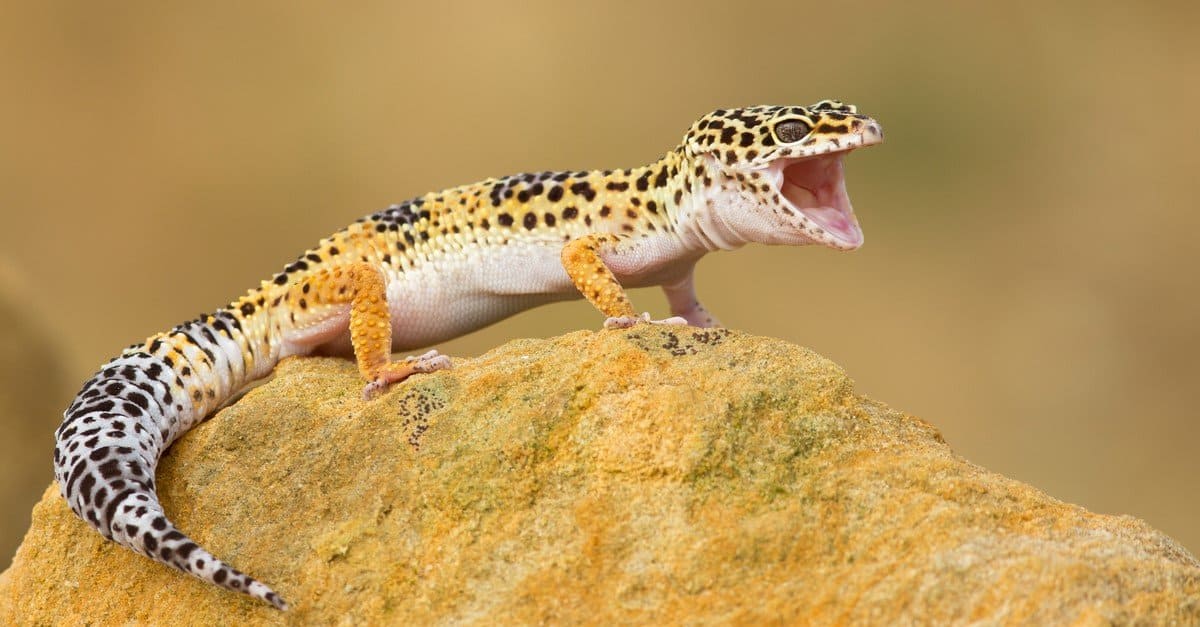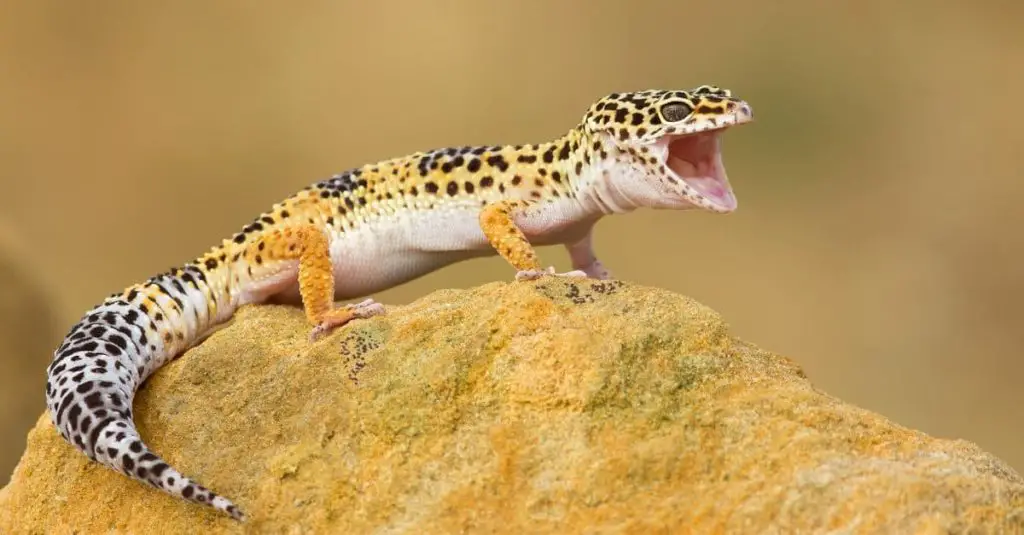Leopard geckos are fascinating creatures that are popular as pets. They are known for their unique appearance, interesting behavior, and low-maintenance requirements. If you are a new leopard gecko owner, you may be wondering what time your pet wakes up. In this article, we will explore the sleeping habits of leopard geckos and provide you with some useful tips to keep your pet healthy and happy.
Leopard geckos are crepuscular animals, which means they are most active during dawn and dusk. They are known to be nocturnal creatures that prefer to sleep during the day and come out at night to hunt for food. However, the exact time when leopard geckos wake up can vary depending on several factors, such as the temperature, lighting, and the gecko’s age and health. Read on to learn more about when leopard geckos wake up and how you can ensure they get the rest they need.
What Time Do Leopard Geckos Wake Up?
Leopard geckos are nocturnal creatures, which means they are mostly active at night. They usually wake up in the late afternoon or early evening and stay active throughout the night. It is important to maintain a consistent day/night cycle for your gecko to avoid disrupting their natural sleep pattern. Make sure to provide them with a warm and comfortable environment to help them stay healthy and active.

What Time Do Leopard Geckos Wake Up?
Leopard geckos are fascinating creatures with unique behaviors and traits. One of the most common questions that pet owners have is what time do leopard geckos wake up? Leopard geckos are nocturnal animals, which means they are most active during the nighttime. However, their sleeping patterns can vary based on several factors. In this article, we will explore the different factors that affect the wake-up time of leopard geckos.
Factors Affecting Leopard Gecko Wake-Up Time
Leopard geckos have a natural instinct to hide during the daytime and come out at night. However, several factors can affect their wake-up time. The most common factors are:
1. Temperature
Leopard geckos are cold-blooded animals, which means they rely on external sources of heat to regulate their body temperature. If the temperature is too low, they will become lethargic and less active. On the other hand, if the temperature is too high, they may become stressed and hide for longer periods. The ideal temperature range for leopard geckos is between 75°F to 85°F.
2. Lighting
Leopard geckos require a light source, but they don’t need it to be as bright as the sun. Too much light can cause stress and affect their sleep patterns. It’s best to provide them with a dim light source to mimic their natural environment.
3. Diet
Leopard geckos are carnivorous and require a diet rich in protein. A proper diet can affect their energy levels and wake-up time. It’s essential to provide them with a balanced diet of insects such as crickets, mealworms, and dubia roaches.
4. Age
Younger leopard geckos tend to be more active and wake up earlier than older ones. As they age, they may become less active and sleep for longer periods.
Benefits of Understanding Leopard Gecko Wake-Up Time
Understanding the wake-up time of leopard geckos can help pet owners provide them with a suitable environment. It can also help them identify any potential health issues. If a leopard gecko is sleeping for an extended period or isn’t waking up at all, it may be a sign of illness.
1. Proper Environment
Creating a suitable environment for leopard geckos can promote healthy sleeping and waking patterns. By providing them with the ideal temperature, lighting, and diet, pet owners can ensure their leopard geckos are healthy and active.
2. Early Detection of Health Issues
Monitoring the wake-up time of leopard geckos can help pet owners identify any potential health issues. If a leopard gecko is sleeping for more than 24 hours or isn’t waking up at all, it may be a sign of an underlying health issue.
Leopard Gecko Wake-Up Time Vs. Other Reptiles
Leopard geckos are not the only reptiles that are nocturnal. Other reptiles such as snakes, bearded dragons, and chameleons are also active during the nighttime. However, the wake-up time of these reptiles may vary based on their species and natural habitat.
1. Snakes
Snakes are also nocturnal, but their wake-up time may vary based on their species. Some snakes may be active during the early morning or late afternoon, while others may only be active at night.
2. Bearded Dragons
Bearded dragons are diurnal, which means they are active during the daytime. They typically wake up when the sun rises and go to sleep when the sun sets.
3. Chameleons
Chameleons are also diurnal, but their waking time may vary based on their natural habitat. Some chameleons may wake up early in the morning, while others may be active during the late afternoon.
Conclusion
Understanding the wake-up time of leopard geckos can help pet owners provide them with a suitable environment and identify any potential health issues. Factors such as temperature, lighting, diet, and age can affect their sleeping patterns. By creating a comfortable environment and monitoring their wake-up time, pet owners can ensure their leopard geckos are healthy and active.
Frequently Asked Questions
What time do leopard geckos wake up?
Leopard geckos are crepuscular animals, meaning they are most active during dawn and dusk. They are known for their love of basking under the sun, so they typically wake up in the morning to find a warm spot to lounge on. This usually happens around 7-9 a.m.
However, it’s important to note that every leopard gecko is different and their sleep patterns may vary. Some may choose to sleep in longer or wake up earlier than others. Additionally, if you provide your leopard gecko with artificial lighting, it may affect their natural sleep cycle.
How long do leopard geckos sleep?
Leopard geckos are known for being heavy sleepers, often sleeping up to 16 hours a day. They typically sleep during the day and become more active in the evening and throughout the night.
It’s important to provide your leopard gecko with a comfortable and safe sleeping environment. This can be achieved by providing a hide box or cave where they can retreat to for privacy and comfort. Additionally, make sure to maintain a consistent day and night cycle to help regulate their sleep patterns.
Do leopard geckos wake up during the night?
Leopard geckos are known for being nocturnal animals, meaning they are most active during the night. They may wake up several times during the night to move around, hunt for food, or use the bathroom.
It’s important to provide your leopard gecko with a suitable environment for nighttime activity. This includes providing a heat source to maintain a comfortable temperature and enough space to move around. Additionally, make sure to provide a shallow water dish for them to stay hydrated during the night.
What happens if a leopard gecko doesn’t get enough sleep?
Sleep is crucial for leopard geckos to maintain their health and wellbeing. If they don’t get enough sleep, it can lead to a weakened immune system, reduced appetite, and even stress.
To ensure your leopard gecko is getting enough sleep, provide a comfortable and safe sleeping environment, maintain a consistent day and night cycle, and avoid disturbing them during their sleep. If you notice any signs of sleep deprivation, such as lethargy or loss of appetite, consult with a veterinarian to address any underlying health issues.
How can I tell if my leopard gecko is sleeping?
Leopard geckos are known for being heavy sleepers, often sleeping with their eyes closed and their body still. They may also tuck their tail around their body or bury themselves under substrate.
If you’re unsure whether your leopard gecko is sleeping or not, observe their behavior and look for signs of movement or activity. Additionally, make sure to avoid disturbing them during their sleep to ensure they get the rest they need.
What It’s Like Owning Geckos Who Sleep ALL DAY 😴
In conclusion, leopard geckos are fascinating creatures that have unique sleep patterns. Although they are nocturnal animals, they often wake up during the day to bask in the sun. It is important to understand your gecko’s individual sleep habits and needs to provide them with a comfortable and healthy environment.
By observing your leopard gecko’s behavior and providing them with proper care, you can ensure that they are getting enough rest and staying healthy. Remember, creating a consistent and comfortable environment for your gecko is key to their overall well-being.
In summary, understanding your leopard gecko’s sleep patterns is crucial to their health and happiness. By providing them with a comfortable and safe environment, you can help them thrive and enjoy a long and healthy life. So, next time you ask yourself, “what time do leopard geckos wake up?” remember to take into account their individual needs and habits.


